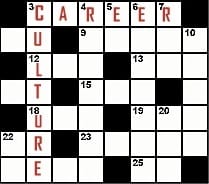In working with organizations across industries and across the country, I’ve become increasingly convinced that somehow the simple human act of helping people grow has gotten very complicated. Processes overshadow people. Deadlines trump genuine development. And a checklist mentality competes with creating authentic connections.
Rather than forms and systems, career development is all about the conversation and culture. Organizations that understand this enjoy a range of benefits:
 Customers enjoy higher levels of service.
Customers enjoy higher levels of service.- Everyone is more effective because talents and skills are continually being upgraded and challenged.
- Innovation flourishes as employees are willing to invest their discretionary effort.
- Sales, profits, and margins rise.
Cultures that support career development can look very different… but they – and their leaders – tend to share the following characteristics.
Candor and Curiosity
Meaningful career development demands that leaders be present enough with others to consistently bring candor and curiosity to their interactions. Honest and helpful information about performance, perceptions, and possibilities is what employees need to own their development and to drive it forward. And curiosity fuels the whole process.
Approaching work and people with a genuine inquisitiveness while at the same time demonstrating a commitment to candid feedback creates an unbeatable upward spiral of capacity and results.
Patience with the Process
In today’s environment, where results are monitored by the hour and ‘long term’ means next week, patience is in short supply. But leaders who make career development a reality rather than a rallying slogan appreciate the value in focusing on a slightly longer horizon. They don’t need to wrap things up immediately but rather allow thoughts, ideas, and opportunities to evolve organically over time.
An Eye on the Endgame
Development is a big picture game. What are we trying to achieve? What are our goals? Focusing broadly on results – and being less rigid (within reason) about how they are accomplished provides a wide berth within which employees can experiment, try out new talents and skills, approach tasks differently, and grow their capacity. Leadership clarity about the ‘what’ can allow for more creativity around the ‘how’, creating countless vehicles for development.
Blurry Boundaries
Cultures that support career development tend to have leaders with very blurry vision. Rather than hard lines between departments or divisions, they see opportunities to collaborate. Instead of ‘us’ and ‘them’, they see how ‘all of us’ are in this together. Rather than looking out for themselves, they look out for the enterprise. These sorts of leaders actively encourage development because they can look outside of their own areas for opportunities to learn, contribute, and grow. And they’re willing to move people around and even lose good talent to their colleagues as a way to support the development of employees.
Organizations – and leaders – that possess these characteristics are serious about career development. And the culture that’s cultivated in the process grows not only their people but also the business.
How would you evaluate your organization’s culture against these characteristics? What steps can you take to help build a culture that supports career development?
This article was originally posted at CollaborativeTransitions.com, in honor of the Help Them Grow or Watch Them Go book launch. Check out the wonderful work of Coach Georgia Feiste.



Great post Julie!
You are dead on with your assessment of common barriers and the benefits of a culture focused on career development. I really like your points about having your eye on the end game. I think that results based leadership where employees are allowed to be more creative in their solutions (the how) is a key aspect of a winning culture. I completely agree with your points on candor and patience as well.
This post is a great reminder for leaders to keep the long term view in mind. It is important to remember that company success and employee development are part of a marathon… not a sprint. Thanks!
I couldn’t agree more, Stephen. Getting people involved and engaged, letting them make decisions about how to do the work… it’s absultely key. Thanks so much for sharing your perspective!